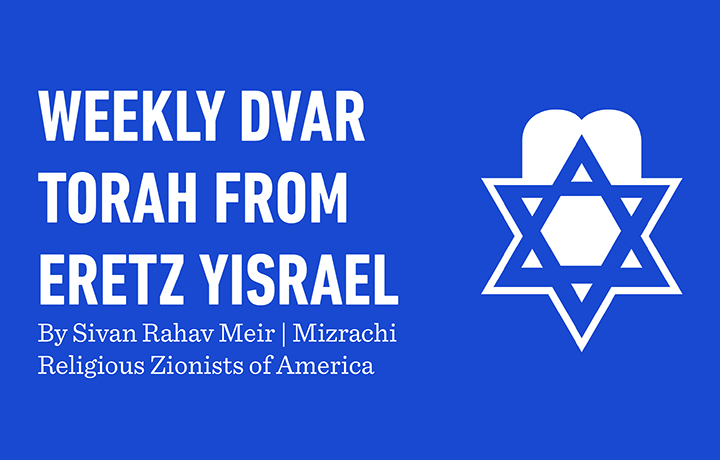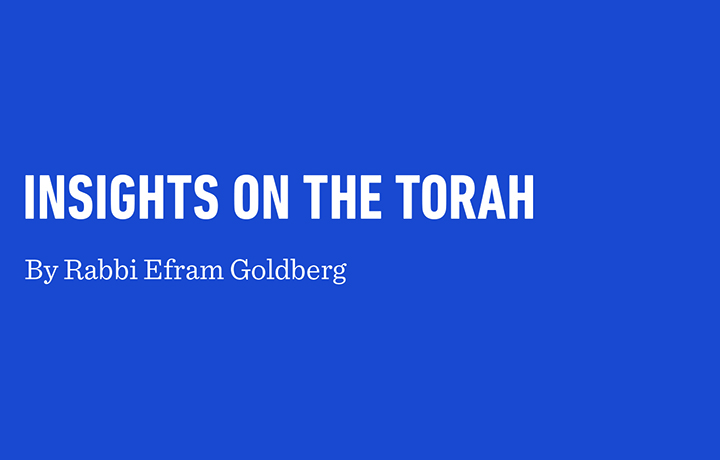Becoming Torah
Are Torah-observant Jews different or do we just do different things? How personally transformative is our faith and practice?
Klal Yisrael was consistently exhorted by our prophets and leaders to be mindful of ritual actions and words empty of feeling (Yeshayahu 29:13), and of the utter inconsistency, meaninglessness, and even repulsiveness of the religious observances of those who are harmful and apathetic to others (Yeshayahu 1:10-17). If we are just doing and not feeling, or if we are doing some things while blatantly ignoring others, we are in that failed zone of doing without being. “Making it a part of ourselves” may sound cliché, but there is nothing more real.
Pinchas successfully made the Torah part of himself. My rebbe, Harav Yaakov Weinberg, zt’l, whose yahrzeit was this week (17th of Tammuz), noted how the first Mishnah in Pirkei Avot teaches us “ha’ami talmidim harbei, raise up [or more literally stand up] many students.” While we are accustomed to teachers telling their students to sit down and listen, the ideal is to empower the students to make the lessons their own and to get up and act upon them. That was Pinchas. When Moshe himself was unable to respond it was Pinchas who stood up and acted upon the lessons that Moshe had taught him (Rashi Bamidbar 25:6-7). Hashem Himself then offers the ultimate description and accolade of Pinchas’ integration of religious values when He praises Pinchas for being passionate on His behalf, b’kano et kinati (Bamidbar 25:11). Pinchas did not just do Torah, he became Torah, as his own feelings and visceral reactions reflected the values of Hashem and His Torah.
This perspective may add a layer of meaning to the known tradition that identifies Pinchas with another great person known for his passion on G-d’s behalf, Eliyahu Hanavi (Pirkei d’Rabi Eliezer 16). Amongst other things, Eliyahu had the unusual experience of leaving this world by ascending in a chariot of fire—body and soul—to the heavens (Melachim II 2:11). He was the very opposite of Korach, who descended—body and soul, still breathing—into the depths of the earth. Typically, death testifies to the failed integration of body and soul, as “the dust returns to the earth where it began, and the spirit returns to the G-d Who gave it” (Koheles 12:7). In the case of Korach, his denial of the divine communication and connection experienced by Moshe testified to the utter grounding of his own spirit, its complete absorption by his physicality, to the point where it joined the body in being swallowed up by the earth. Eliyahu/Pinchas was the opposite. He passionately and completely upheld and supported Moshe, believing and feeling the connection of G-d and man to the point where his body joined his soul in its ascent to the heavens. Eliyahu/Pinchas was—to use a phrase that may sound shallow—a totally spiritual person. He wasn’t just doing Jewish; he was transformed by his Judaism.
We have just begun the Three Weeks, the period of mourning over the destruction of Yerushalayim and the Mikdash. As the Talmud records, the attacking Babylonian generals—or for that matter their Persian, Greek, Roman, German, Russian, Palestinian, and Iranian successors—were powerless to destroy a city or a temple occupied by G-d. They could only destroy an empty shell. “A Divine Voice emerged and said to [Nevuzaradon]: You killed a nation that was already dead, you burned a Sanctuary that was already burned, and you ground flour that was already ground (Sanhedrin 96b).” Our task during this time and always is to ensure that our Jewish communities, our shuls, and our selves are not hollow shells but living, breathing entities, transformed and infused through and through by our vibrant connection to Hashem and His Torah. n
Rabbi Moshe Hauer is executive vice president of the Orthodox Union (OU), the nation’s largest Orthodox Jewish umbrella organization.













